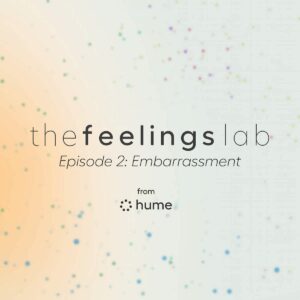Contents » + -
Media: Emotion
2013 »
Randles & Tracy (2013)
Shamed into taking a drink? Nonverbal displays of shame predict relapse and worsening health among recovering alcoholics.
Clinical Psychological Science
Download PDFThis article has been featured on:
Cheng, Tracy, Foulsham, Kingstone, & Henrich (2013).
Two ways to the top: Evidence that dominance and prestige are distinct yet viable avenues to social rank and influence
Journal of Personality and Social Psychology, 104, 103–125.
This article has been featured on:
2012 »
Ashton-James & Tracy (2012)
Pride and Prejudice: Feelings about the self influence judgments of others.
Personality and Social Psychology Bulletin, 38, 466-476.
Download PDFThis article has been featured on:
2011 »
Shariff & Tracy (2011)
What are emotion expressions for?
Current Directions in Psychological Science, 20, 395-399
This article has been featured on:
Tracy & Beall (2011)
Happy Guys Finish Last: The impact of emotion expressions on sexual attraction.
Emotion, doi: 10.1037/a0022902.
Download PDFThis article has been featured on:
2008 »
Tracy & Matsumoto (2008)
The spontaneous display of pride and shame: Evidence for biologically innate nonverbal displays.
Proceedings of the National Academy of Sciences, 105, 11655-11660.
Download PDFThis article has been featured on:
2019 »
Taking ginger pills can make disgusting ideas more palatable.

Francesco Carta / Getty
By Sam Wong
We often say our sense of morality is guided by our gut feelings – and this may be truer than we realise. A set of experiments using the anti-nausea powers of ginger have provided the strongest evidence yet that bodily sensations play a key role in some of our moral judgements.
Previous studies have reported that the more disgusted people feel, the more wrong they judge moral infractions to be. However, it’s not clear whether feelings of disgust guide moral judgements, or if it …
Read the full article in the New Scientist here >>
The Action-Unit Imposter Effect
A Facial-Action Imposter: How Head Tilt Infers Perception of Dominance From a Neutral Face
2021 »
The Feelings Lab Episode 2: Embarrassment

Check out Jess' feature on the second episode The Feelings Lab podcast, where she discusses the feeling of embarrassment alongside Dr. Alan Cowen, Dr. Dacher Keltner, Matt Forte, and Ali Kolbert!
2022 »
The Science of Envy in the Age of COVID-19
Jess was recently featured in an article published by the Globe and Mail where she outlines the utility of and differences between envy and jealousy. This article discusses the mechanisms behind social comparison as we move into a post-pandemic era, and whether envy and jealousy are helpful or detrimental to society.
Click the link to learn more about these emotions in the context of a pandemic!
2017 »
The Top 10 Insights from the Science of a Meaningful Life in 2016
Greater Good Science Center included our finding that humility has a dark side as one of the top 10 insights from the science of a meaningful life in 2016.
2016 »
Do Feelings Look the Same in Every Human Face?
Jess Tracy discusses the universality of emotion expressions in an article published in Greater Good Magazine.